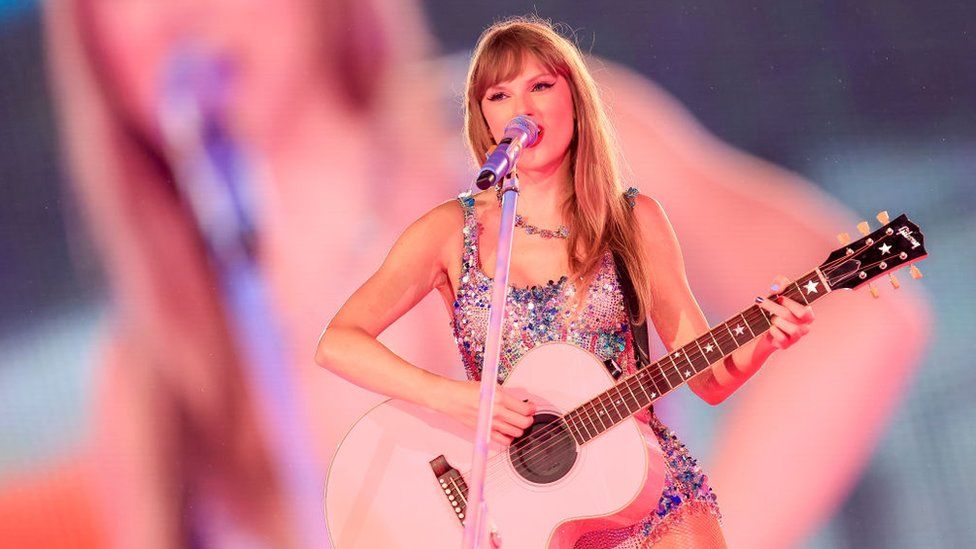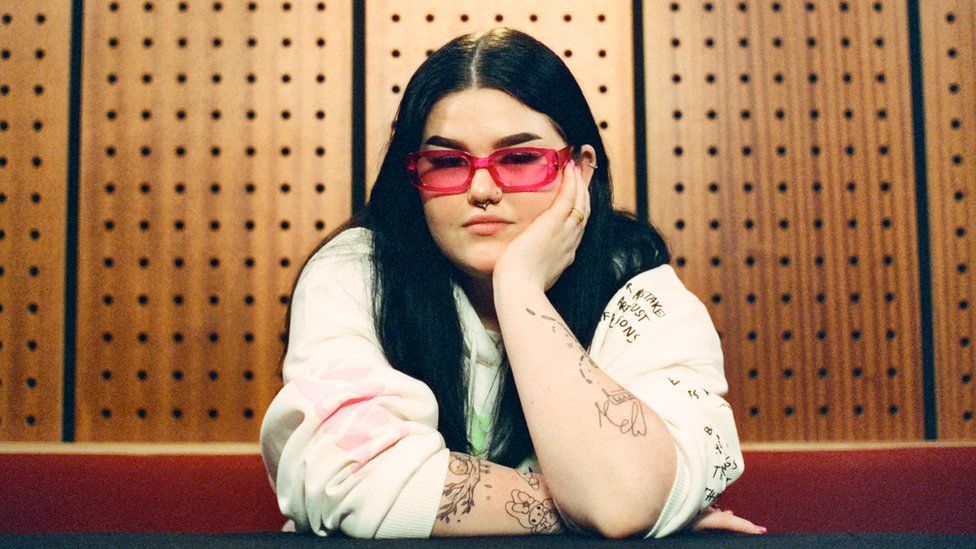

TikTok says it has started removing more music from its platform as part of a continuing row over royalties with Universal Music Group (UMG).
The app has already silenced songs by artists signed to the label, but is now having to do the same with writers too.
This means that videos featuring songs by artists such as Harry Styles and Adele, who have written with Universal-signed artists, could soon be muted.
TikTok says up to 30% of what it calls “popular songs” could be lost.
But some industry estimates say up to 80% of all music on TikTok could be muted.
That’s because of something called “split copyrights”. In other words, if a songwriter signed to Universal Music’s publishing arm has contributed even a tiny part to a song, that entire recording will, in theory, have to come down.
That would include songs by artists on other labels, including the two remaining majors, Sony and Warner, and hundreds of independents.
Universal’s music was licensed to TikTok until earlier this year – but they let the license lapse after failing to reach an agreement over how much the app should pay artists.
As a result, the label’s recording catalogue, which is around three million songs, was removed at the start of February.
The publishing catalogue deal runs out at the end of the week, which means another four million songs are expected to be pulled from the platform.

Universal has accused TikTok of “bullying” them by wanting to pay a “fraction” of the rate other platforms do for their music.
UMG says that just 1% of their total revenue comes from the platform, which is owned by Chinese company ByteDance, despite having more than one billion users.
TikTok said Universal was presenting a “false narrative and rhetoric”.
Music is a big part of the appeal of TikTok – content creators often add songs to their videos.
The app has also become a tool for artists to gain popularity and get their songs heard – there’s even a TikTok Billboard top 50 chart in the US, which is calculated from user engagement.

Songs have been used to create viral moments like dance trends or challenges, popular musicians have embraced the platform to feel closer to fans and new artists have broken through to mainstream success as a result of it.
Mae Stephens, a 20-year-old from Kettering, quit her job at a supermarket and signed to a record label after her song If We Ever Broke Up went viral on TikTok.
She told the BBC, “It’s a bit of shock to be honest, I still can’t believe everything that happened to me.”
The row over royalties has raised concerns that artists who found a fanbase on TikTok before signing to a major label will no longer be able to capitalise on their following.
Cody Fry, an artist signed to a record label owned by UMG, said in a TikTok video he felt “like a person standing between two colliding planets” – having seen reports about the licensing agreement expiring just as one of his tracks was going viral in China.
He told the BBC that he thought TikTok should “value music more than it does currently” and he wished the two companies could have resolved their differences without “leaving it to the expense of artists on the ground”.
But pop star Kim Petras, whose music has been muted on the platform, says she supports Universal’s position.
“I feel very protected by Universal,” she told the BBC last week. “I know people who have number one records and can’t afford their rent, so I’m proud Universal is taking a stand.
“Of course, right now, all of us Universal artists are screwed a little bit, but you’ve gotta take one for the team. The intentions are noble.” – bbc.com